Introduction
Newfoundlands are large, working dogs that were historically bred for water rescue
This breed is known for its endurance
But that doesn’t mean they require endless exercise
- Age and Activity Levels: Puppies need short, gentle play sessions, while adults benefit from consistent exercise
- Daily Exercise Needs: Adult Newfoundlands generally need 1 to 2 hours of daily exercise
Pro Tip:
- Incorporate mental stimulation in their daily routine
- Puzzle toys and training sessions can prevent boredom
2. Tailoring Exercise to Your Newfoundland’s Personality
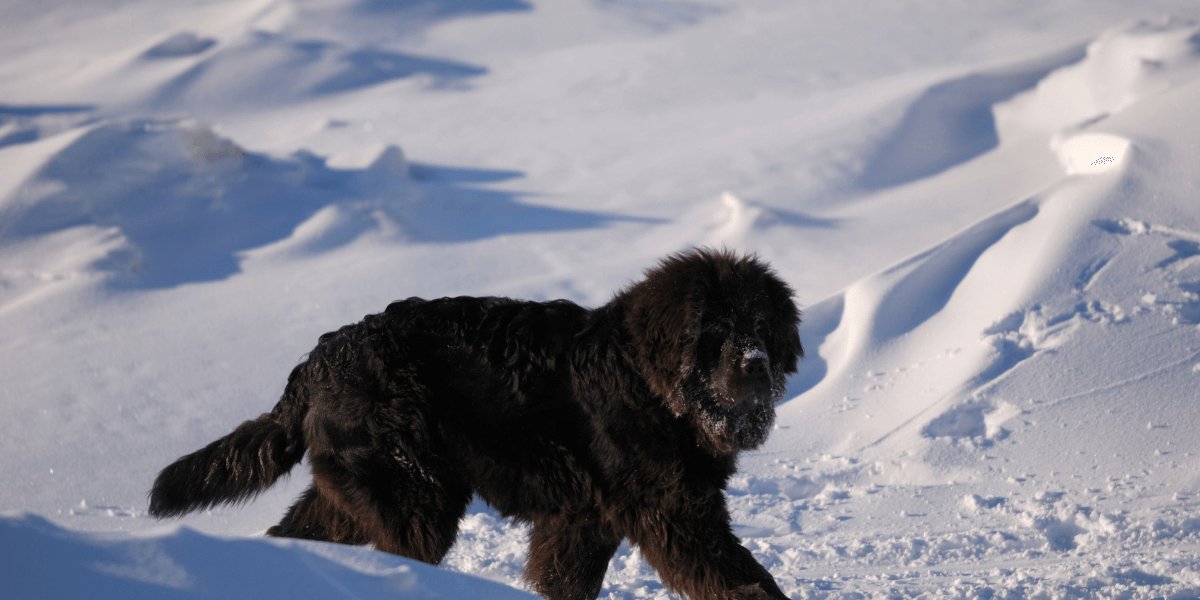
Every Newfoundland is different
While some may be eager to play and explore, others might prefer lounging around
Knowing your dog’s personality is key to designing an effective exercise plan
- Energetic Newfoundlands: These dogs thrive on active play, long walks, and interactive games like fetch
- Laid-Back Newfoundlands: For dogs with a calmer demeanor and low-impact games that align with their slower pace
Remember: Even more relaxed Newfoundlands still need daily exercise
3. The Role of Swimming in Newfoundland Exercise
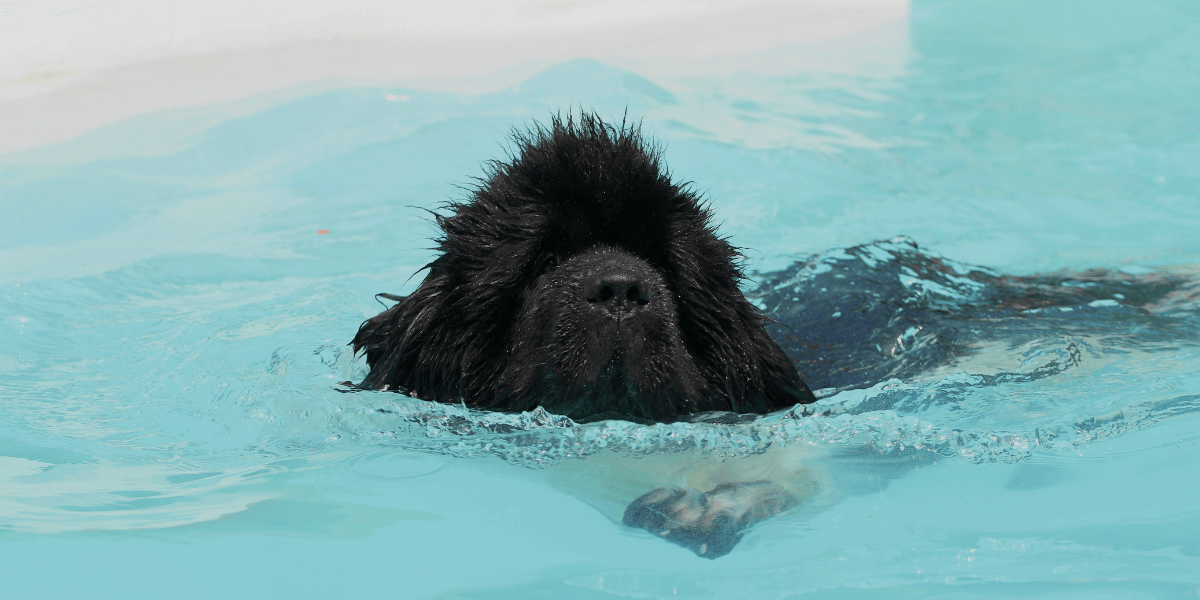
As natural water dogs, Newfoundlands are built for swimming
Incorporating this activity into their routine
Not only keeps them fit but also satisfies their instinctual love for water
- Benefits of Swimming: Swimming is a low-impact exercise that builds muscle strength
- Safety First: Always ensure your Newfoundland swims in safe, clean water
Try This: Invest in a life vest for additional safety during open water swims
4. Balancing Structured Exercise with Playtime
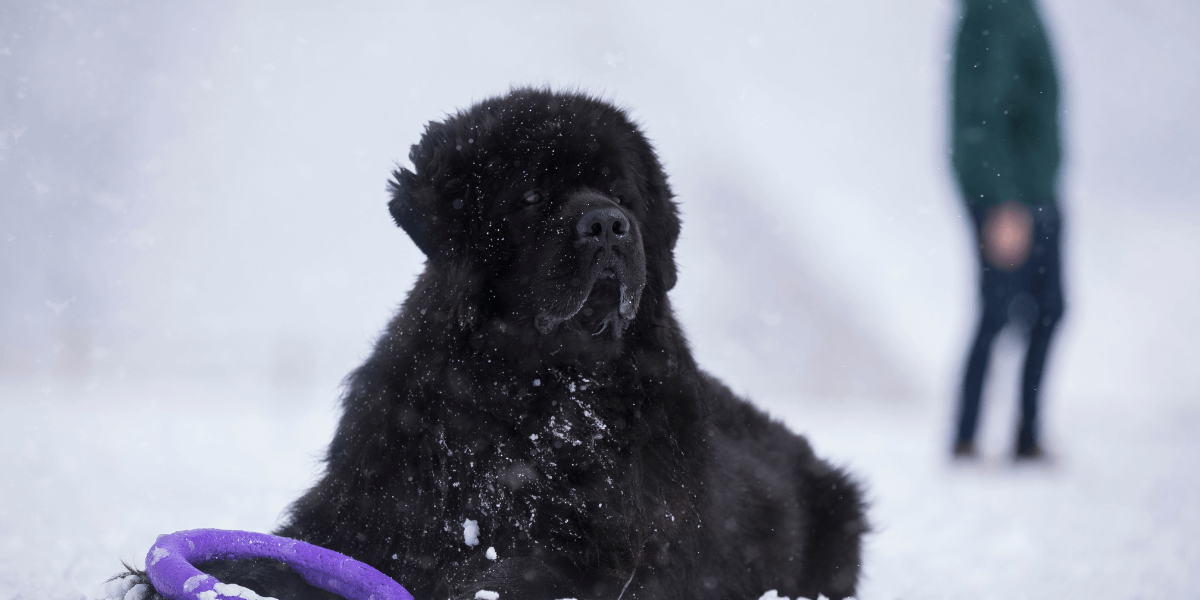
Structured exercise like daily walks and swim sessions are essential.
But playtime is just as important for a Newfoundland’s well-being
- Interactive Toys: Use durable chew toys and fetch toys to keep your dog engaged during playtime
- Off-Leash Play: If you have access to a secure, fenced area, allow your Newfoundland some off-leash time
Pro Tip:
- Set aside time for play both indoors and outdoors
- This variety keeps your dog mentally sharp
5. Adjusting Exercise for Hot and Cold Weather

Newfoundlands are well-suited to cold climates due to their thick double coats.
But they can struggle in hot weather.
Exercise routines should be adjusted accordingly
- Cold Weather: Snowy walks and hikes are especially fun for this breed
- Hot Weather: In summer, aim for early morning or late evening exercise sessions when it’s cooler
Quick Tip: On hot days, limit exercise duration and intensity to prevent overheating
6. The Importance of Regular Exercise
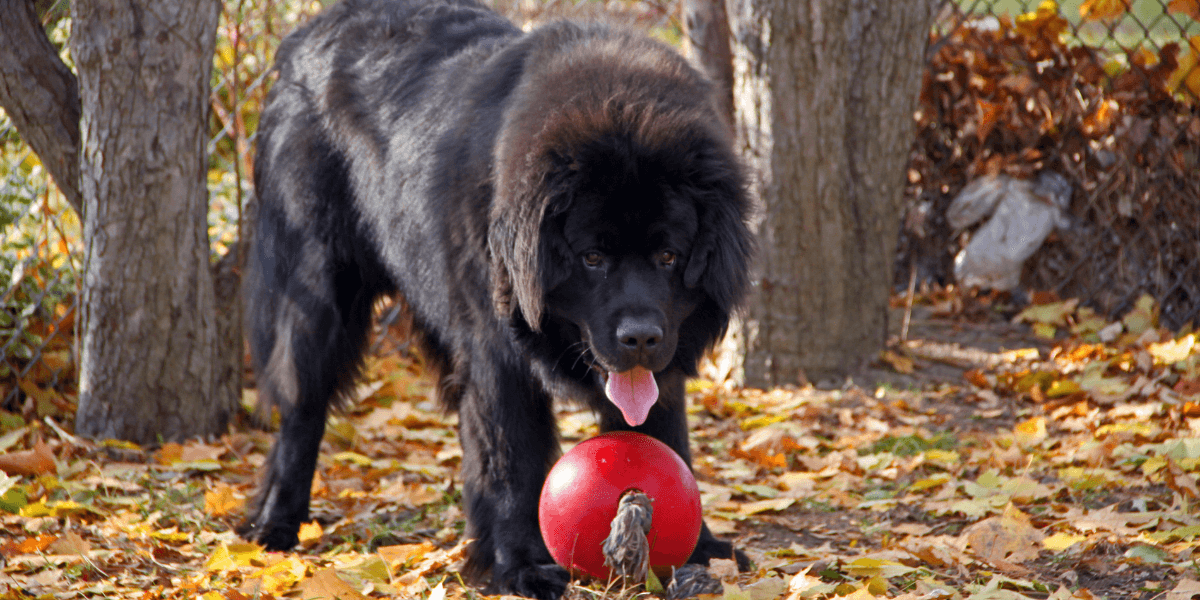
Due to their large size and slower metabolism.
Newfoundlands are prone to weight gain if not given adequate exercise.
Obesity can lead to serious health problems like joint issues and heart disease.
- Balanced Diet and Exercise: Ensure your Newfoundland’s diet aligns with their activity level
- Watch for Signs: Keep an eye out for early signs of weight gain, or visible fat deposits
Recommendation: Consult your veterinarian to determine the best diet
7. Incorporating Mental Stimulation into Your Newfoundland’s Routine
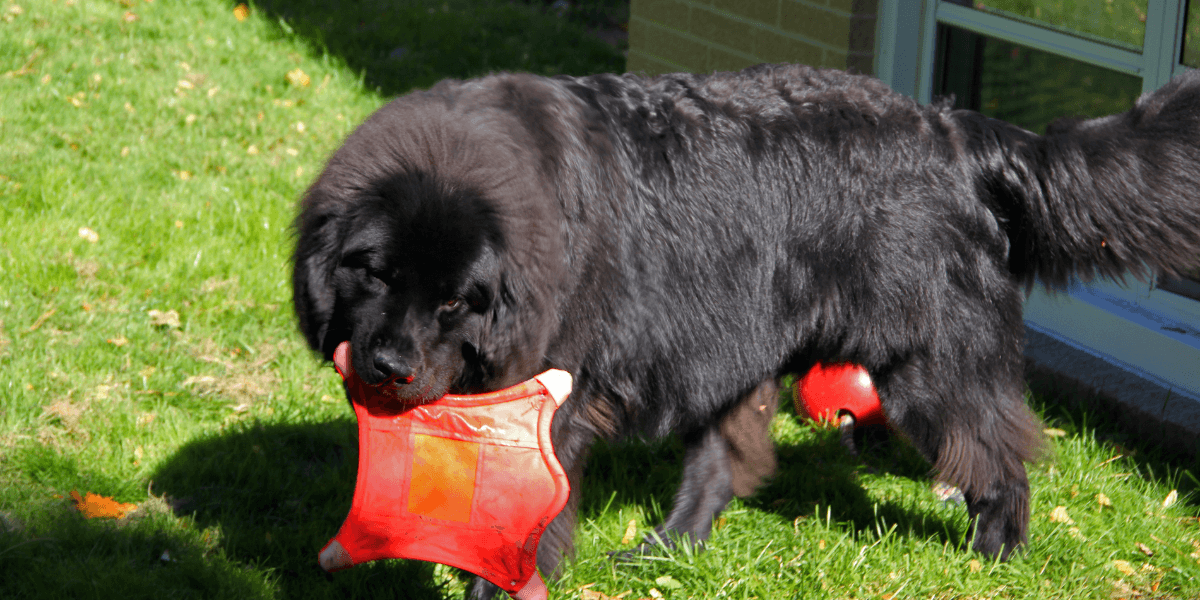
Physical exercise is crucial, but mental stimulation should not be overlooked.
A bored Newfoundland may become destructive or anxious.
- Training Sessions: Incorporate obedience training and new tricks into their routine
- Interactive Games: Hide-and-seek, and puzzle toys are excellent ways to keep your dog mentally sharp
Discover how the exercise needs of Newfoundlands differ from French Bulldogs on keeping your Frenchie fit and happy.
FAQs
1. How much exercise does a Newfoundland need daily?
- Newfoundlands need at least 1-2 hours of exercise each day
2. Can a Newfoundland be over-exercised?
- Yes, avoid intense exercise to protect joints and prevent fatigue
3. What’s the best exercise for a Newfoundland?
- Swimming and walking are ideal due to their gentle impact
4. Is mental stimulation part of Newfoundland Exercise Needs?
- Yes, combine puzzles and games to keep them mentally fit
5. How should exercise change as Newfoundlands age?
- Reduce intensity and opt for shorter, more frequent walks
6. Are Newfoundlands suitable for long hikes?
- Moderate hikes are fine, but avoid steep, strenuous trails
7. What’s a sign of insufficient exercise in a Newfoundland?
- Restlessness, weight gain, and destructive behavior indicate more exercise is needed
Conclusion
- Meeting Newfoundland exercise needs ensures a healthy, happy, and well-balanced dog
- Daily moderate activity, like walks and swimming, keeps your Newfoundland fit and active
- Tailor exercises to your dog’s age, health, and energy levels for optimal results
- Always monitor for signs of fatigue or joint strain, adjusting activities as needed
- Consistency and variety in exercise routines enhance both physical and mental well-being
- Prioritize exercises that align with their natural strengths, like water activities
- By focusing on Newfoundland exercise needs, you can help your dog thrive and enjoy life
- Remember, a happy Newfoundland is one that’s engaged, exercised, and loved daily
Have experience exercising a Newfoundland?
Share your tips in the comments below!
Let’s keep these gentle giants healthy and thriving!
References
For more information on Newfoundland Exercise Needs, check:
- How Much Exercise Does My Newfoundland Dog Need? Vet-Reviewed Advice
- How Much Exercise Does a Newfoundland Need?
- Choosing the Best Orthopedic Dog Bed
- Orthopedic Dog Beds: Help for Senior Dog Arthritis?
- Newfoundland Exercise Needs
Thank you!





